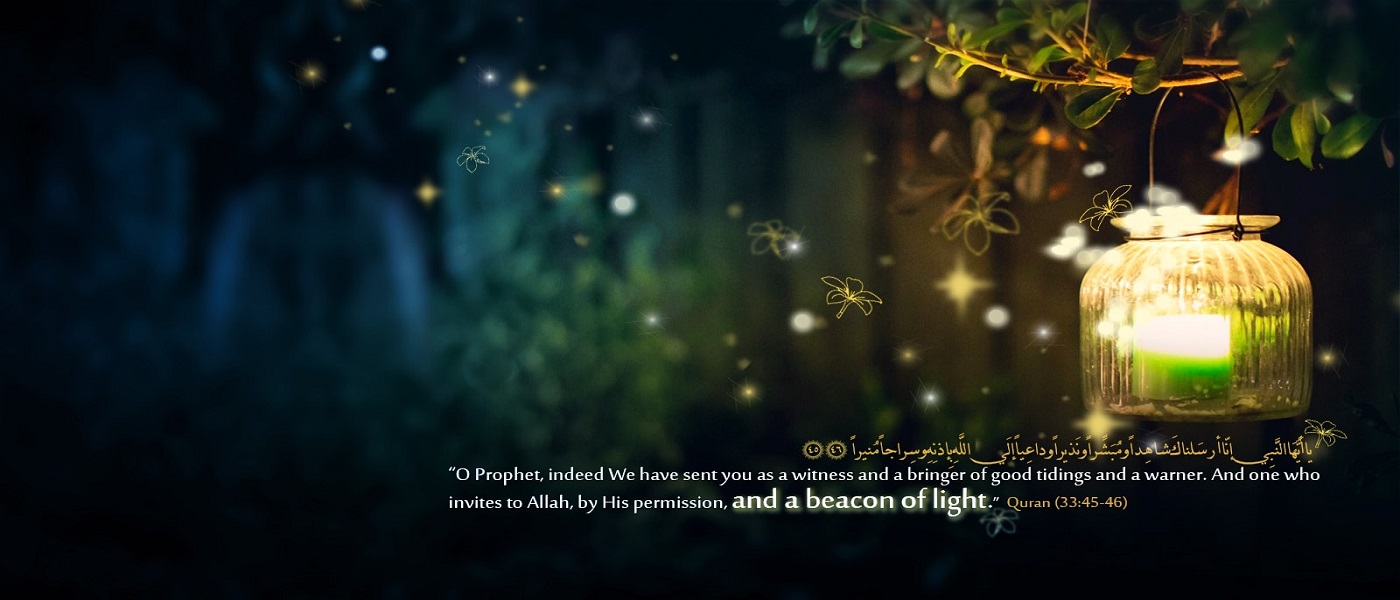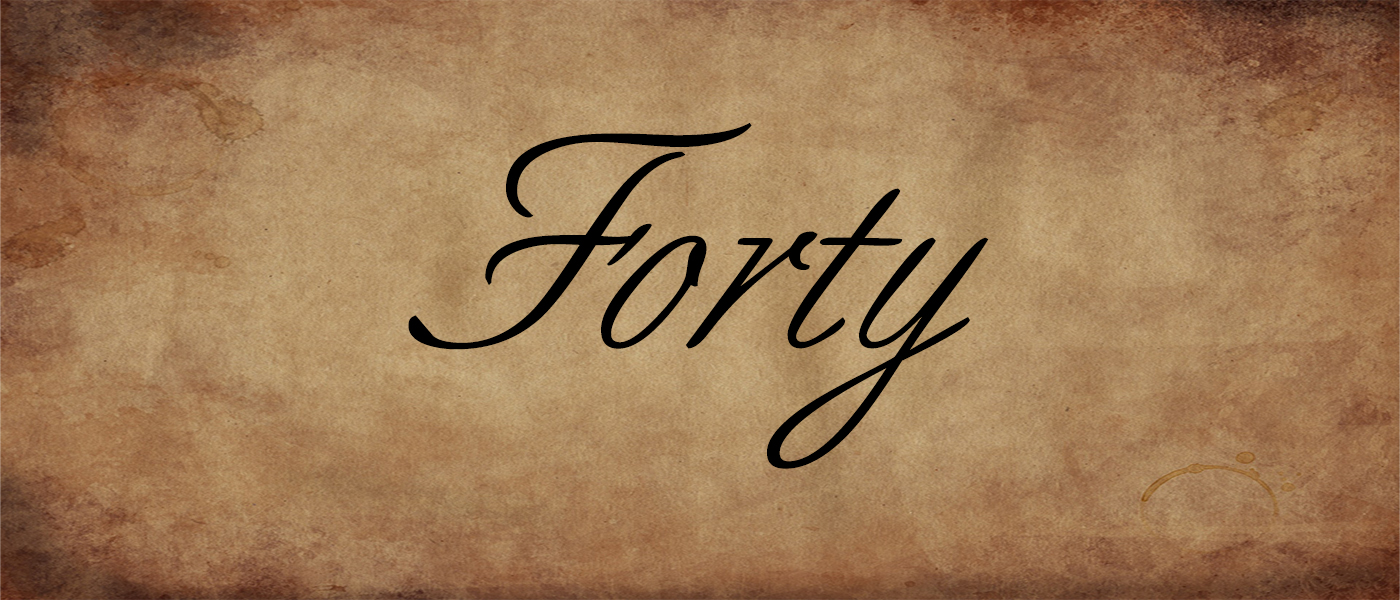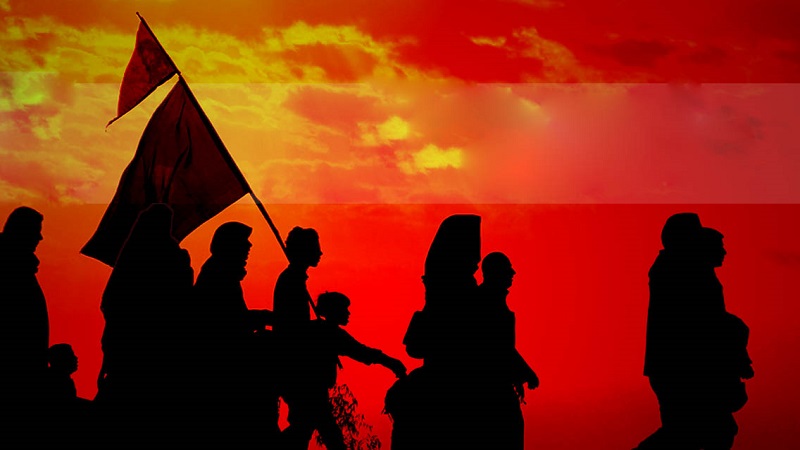

Can Muslims Eat Any Meat?
When Western people travel to eastern Islamic countries, they often prefer to eat the folk and favorite local food of the region. But what is it that makes western Muslims starve for a KFC classic chicken–on–the–bone bucket meal, or a McDonalds’ double burger if they don’t eat meat?! Muslims are Muslims, not vegetarians and eating meat in Islam is allowed, But like the followers of other religions who have specific slaughtering rituals, Muslims also have explicit rulings for slaughtering particular animals to make it lawful (Halal).
Eating Meat in Islam
As it is defined in the Quran, believers are welcomed to enjoy all of the blessings of this world [1]. Therefore, about eating meat, Allah does not mention what to eat, but He excludes what is not lawful to eat and maybe physically or spiritually harmful to the human's body and soul. "You are permitted animals of grazing livestock, except what is [now] announced to you…" (5:1) and what is recited as prohibited is mentioned in the Quran as below:
You have prohibited carrion, blood, the flesh of swine, and what has been offered to other than Allah, and the animal strangled or beaten to death, and that which dies by falling or is gored to death, and that which is mangled by a beast of prey— barring that which you may purify —and what is sacrificed on stone altars [to idols], and that you should divide by raffling with arrows...(5:3).
Other than the mentioned meats all other kinds of meat are Halal as described in the Quran: Say, ‘I do not find in what has been revealed to me that anyone is forbidden to eat anything except carrion or spilled blood, or the flesh of swine—for that is indeed unclean—or an impiety offered to other than Allah.’ But should someone be compelled, without being rebellious or aggressive, indeed your Lord is all-forgiving, all-merciful’ (6:145).
Please note that all kinds of lawful (Halal) meat must be slaughtered according to Islamic rulings: “Do not eat [anything] of that over which Allah’s Name has not been mentioned, and that is indeed transgression…” (6:121).
Even the above mentioned prohibited meats are lawful (Halal) while you are living in a problematic situation and following the rules of Islam will put you in extreme difficulty. Please note that difficulty does not mean that you do not have ready food at home and therefore you may eat forbidden (Haram) meat. A difficulty, as written in Islamic jurisprudence, is when one’s life is at risk, and there is no other food available but forbidden (Haram) meat.
A Detailed Description of Lawful (Halal ) and Forbidden (Haram ) meats
To be more precise on which meat is lawful, let’s have a review of the Islamic jurisprudence.
Lawful and Unlawful Meats
Sea Creatures
Fish that have scales are the only type of Halal sea creatures. Other sea creatures and fish are Haram [2].
Land Creatures (Domestic or Wild)
Among all domestic land creatures; sheep, cow, and camel are Halal, but eating the meat of horse and donkey is detestable (Makruh). The rest of domestic land creatures such as dogs, cats, etc. are forbidden (Haram).
Deer, cow, zebra, mountain goat, and wild donkey are all Halal. However, eating the meat of wild predatory animals that are predatory in essence, have strong and sharp nails, claws, and fangs such as, lions, leopards, cheetahs, wolves, or animals with less sharp fangs such as foxes and hyenas as well as rabbits, while not part of the predatory category, are considered Haram.
Also, insects and reptiles, such as snakes, mice, lizards, hedgehogs, fleas, lice, etc., are all Haram. Animals who have undergone metamorphosis (maskh) [i] such as, elephants, monkeys, bears, etc. are Haram as well [3].
Birds
Birds that flap their wings more than they glide while flying are Halal, but birds that glide and spread their wings more while flying in the air instead of flapping their wings are Haram. Also, birds with gizzards and spurs at the back of their feet are Halal [ii] [4].
Insects
All insects are Haram [iii] [5].
Eating Raw Meat
It is permissible to eat Halal meat cooked or uncooked or even burned (as long as it has no harm to human health) [7].
The Rules of Hunted Meat
Please note that the rules of slaughtering and eating hunted meat are slightly different from all the rulings mentioned above, and we will discuss that in a separate article.
Can Muslims Eat Kosher?
"For every nation, We have appointed a rite so that they might mention Allah’s Name over the livestock He has provided them" (22:34).
Although Jews have their specific rules of slaughtering that have many similarities to the Islamic rulings, as there are minor differences in the slaughtering of Jews and Muslims, therefore kosher meat is not lawful (Halal) for Muslims [8].
Notes:
[i] In Arabic, Maskh means for something to change form to an uglier one. In the Quran and Islamic tradition, this term refers to a specific divine punishment that was sent upon the wrongdoers and wrongdoing nations in the past (of course not all wrongdoers, but those who committed certain wrong acts) which can be called metamorphosis [9].
[ii] Birds with sharp claws such as eagles, hawks, falcons, etc. are Haram.
[iii] If a locust is caught by hand or any other means, it is lawful (Halal) (after dying) [6].
References:
- “Say, who has forbidden the adornment of Allah which he has produced for his servants and the good (lawful) things of provision?”(7:32)
- Imam Khomeini, Tahrir al-Wasilah, vol. 2, pg. 137, the book of foods and drinks, issue 2; al-Mukhtasar al-Nafi’, pg. 251; Sharayi’ al-Islam, pg. 169.
- Ibid
- food in Islam
- Tawdih al-Masa’il (annotated by Imam Khomeini), vol. 2, pg. 603.
- Tawdih al-Masa’il (annotated by Imam Khomeini), vol. 2, pg. 593, issue 2622.
- Imam Khomeini, Tahrir al-Wasilah, vol. 2, pg. 162
- Halal food
- halal food in Islam
Share This Article

Who Was Prophet Muhammad (PBUH&HP)? Why Is He Believed As a Prophet?
"Indeed Allah and His angels bless the Prophet; O you who have faith! Invoke blessings on him and invoke Peace upon him in a worthy manner." Quran (33:56)
Prophet Muhammad (PBUH&HP) was the last messenger sent by Allah to guide human beings toward a more prosperous and meaningful life. His life was full of challenges and difficulties. However, he never gave up on his holy mission and strived to save as many souls as he could. His characteristics were unique and exemplary, which made him the best choice for prophethood, the beloved of Allah (Habibullah).
Family background
Prophet Muhammad (PBUH&HP) was the son of Abdullah and Amina, the grandchild of Abd al-Muṭṭalib and from the Banu Hashim clan. He was born in Mecca about the year 570 A.C, in the month of Rabi’ al-awwal [1]. Being taken care of by his paternal grandfather, Abd al-Muṭṭalib, and then by his uncle Abu-Talib, father of Ali (AS), who loved him a lot and regarded him dearer than his own children [2], he learned a little about the merchandise. He was well-known and called Al-Amin, meaning the trustee, due to his honesty and faithfulness [3]. This reputation attracted Khadijah, and she proposed him for marriage. He married this 40-year-old woman at the age of 25 [4]. This was a happy marriage, by all means. They lived a happy life, and they had many children, of which all the male ones passed away, and their most famous daughter is Fatimah (AS). Little is known about his youth before becoming a prophet. One fact is certain; he was absolutely against the discriminating behaviors and beliefs of the people of his era.
Prophet Muhammad (PBUH&HP)'s Social, Political and Personal Life
Prophet Muhammad (PBUH&HP) was a kind and generous man. He was known for his modesty, honesty, and trustworthiness. He never disrespected anyone and cared a lot about his appearance in society; although his clothes were mostly ragged, they were neat and clean. His hygiene was another important fact in his life. Family, as the smallest unit of society, was the most important thing for him. He had a deep respect for his wife and her daughters, especially Fatimah [5].
His political life started with inviting the members of his family and clan to Islam, and then, publically announcing Islam as the true faith sent by Allah for human beings. Soon after the public announcement, many of the heads of clans began to rise against him, and he migrated to Medina, and there, he formed the first Islamic government. His strategy was friendship and peace, and the Quba mosque was the center of his government [6]. He never forced anyone to convert to Islam. Instead, he brought logical words and verses of the Quran and spoke gently with the people he wanted to invite. Even when he tried to ask people of the other religion to convert to Islam, he used their own words and verses from their holy books. All in all, he followed the steps Allah had taught him to guide human beings to the right path:
“Invite to the way of your Lord with wisdom and proper instruction, and argue with them in the best way. Indeed, your Lord is most knowing of who has strayed from His way, and He is most knowing of who is [rightly] guided." (16:125)
Harra Cave: Islam Comes to Life
It was a tradition among some Hashemi Arabs, Called Hunafa, to go to the Harra cave during the month of Ramadan and then come back after the end of the month. Actually, it was Prophet Muhammad’s (PBUH&HP) grandfather who made it up. Muhammad(PBUH&HP) was not an exception.
On the contrary, he was one of the fans of staying alone in that cave and worshiping Allah, his only God and the God of his fathers, up to prophet Abraham [7]. On one of those nights of Ramadan, Gabriel descended to him and asked him to read. Muhammad (PBUH&HP) said: “I can’t.” Gabriel repeated, and he again denied. Then Gabriel recited the first verses of the Quran sent by Allah:
Recite in the name of your Lord who created -
Created man from a clinging substance.
Recite, and your Lord is the Most Generous –
Who taught by the pen -
Taught man that which he knew not. (96:1-5)
Muhammad’s (PBUH&HP) great mission had started. He found out that it was not a typical experience. He came back home and then returned to the cave. All of The Holy Quran descent to him in one of those holy nights:
"Indeed, We sent the Qur'an down during the Night of Decree." (97:1)
The Quran; not His only Miracle
That Quran was descended to Prophet Muhammad (PBUH&HP) in one night and that he became able to read in a few minutes is not the only miracle of Prophet Muhammad (PBUH&HP). He had other miracles like dividing the moon into two, reviving the dead, the testify of stones in the palm of his hand, etc. we are going to discuss these miracles in our next articles broadly [8].
The fact is that the events of that night of Ramadan made Muhammad (PBUH&HP) a prophet. Later on, people interacted with him, saw, felt, and understood his truthfulness, and stepped on the path of Islam. His lifestyle, social, political, and even family interactions carried badges of acceptance and appreciation that were imitated by the truth-seeking people. He was not the prophet belonging to centuries ago, but of all guided human beings.
References:
- "Early Years". Al-Islam.org. Retrieved 18 October 2018.
- Baqdadi, Ibn-Sad Tabaqat Al-Kubra Vol. 1, P 96
- Shirazi, Huhammad Sadiq The Prpphet Muhammad, a Mercy to the World at: <https://www.al-islam.org
- Ibid 2, P. 105
- A survey on Prophet Muhammad’s Behaviours, Hossun, Vol. 9 at:< https://hawzah.net
- Azizi, Musa Political Life of Prophet Muhammad Noghte PArgar Magazinem Pp 84-96 at: <http://hablolmatin.dmsonnat.ir
- Video Lecture of Yasir Qadhi at: < http://lifeofprophet.com/a-few-good-men-the-hunafa/>
- Abu Ibraheem. "Miracles of Prophet Muhammad". Why Islam. ICNA (Islamic Circle of North America). Retrieved 29 April 2019.
Read More

What Is the Significance of Number Forty in Islam?
In different cultures or religions, people pay special attention to some specific numbers. For example, numbers 7, 40, and 70 are amongst lucky numbers, and number 13 is known to be a cursed number in some cultures. However, the significance of the number 40 among many cultures and religions is very noticeable. Therefore, this question may arise that what is so special about this number? Can number forty bring luck and happiness to people? Is it a fact or just a superstition? Let’s have a quick look at the background of the number forty in different religions.
Number Forty in Christianity
Number forty has been mentioned in the Bible in different verses:
1- Jesus (PBUH) fasted "forty days and forty nights" in the Judean desert. (Matthew 4:2, Mark 1:13, Luke 4:2).
2- Forty days was the period from the resurrection of Jesus to the ascension of Jesus (PBUH). (Acts 1:3).
3- Rain fell for "forty days and forty nights" during the Flood (Genesis 7:4). [1]

Number Forty in Islam
Number forty is mentioned in the Quran four times:
1 & 2- Prophet Moses (PBUH) spent 40 days on Mount Sinai, where he received the ten commandments (2: 51, 7: 142).
3- Prophet Moses (PBUH) and his people were lost in the desert for forty years. (5: 26)
4- As mentioned in the Quran, It seems that the age of forty should be the time when a human being is supposed to reach his/her intellectual perfection and understanding of life. This is the time when one can plan the rest of his/her life in a way to gain the most from this world for the hereafter:
“… When he comes of age and reaches forty years, he says, ‘My Lord! Inspire me to give thanks for Your blessing with which You have blessed my parents and me, and that I may do righteous deeds which please You, and invest my descendants with righteousness. Indeed I have turned to you in penitence, and I am one of the Muslims.” (46: 15)
It is narrated from Prophet Muhammad (PBUH & HP) that “When one becomes forty years old, Allah tells his two guardian angels, ‘From now on, be strict on him and note every small and big deed he does’” [2]. The narration emphasizes that the age of forty shapes the personality of a person, and if he/she is still unable to manage his/her life, it is his/her fault for having wasted his/her life in the wrong way.
Number Forty in Narrations and the Conduct of Scholars
There are so many narrations from Prophet Muhammad (PBUH & HP) that mention number forty. Here we list a few of these narrations:
1- “He who purifies his faith for Allah for forty days, Allah will flow the springs of wisdom from his heart to his tongue” [3].
2- “The prayers of the one who drinks wine are not accepted for forty days unless he repents” [4] [i].
3- “The prayers of a person who gossips would not be accepted for forty days and nights” [5].
Some scholars say that number forty is used to emphasize the significant amount of something.
4- “One who leaves his house to gain a gate of knowledge by which he deviates the wrong towards righteous, or deviance to guidance, his deed is equal to forty years worship of a worshipper” [6].
The Fortieth Day after Burial (Arba’een)
In some cultures, it is a tradition that forty days after a passed-away person’s burial, close relatives and friends gather in a place with the family of the late person and remember the passed-away person and wish peace and patience for his/her family. In this manner, they show the family of the deceased person that they are not alone, and people will help them and support them when required.
It is based on this tradition, taken from the conduct of the Prophet (PBUH & HP) and his Progeny (AS) that Muslims travel to Karbala on the 40th (Arba’een) martyrdom commemoration of Imam Hussain (AS) and his companions; Not only to sympathize with the household of Prophet (PBUH & HP) on this event, but to show their gratefulness for their courage in preserving the true Islam and the conduct of the Prophet (PBUH & HP). More importantly, Muslims show that the aim of Imam Hussain (AS) is still observed and taken care of.

Is It OK to Follow the Rules Related to Number Forty?
Based on the importance that some verses of the Quran and narrations of the Prophet (PBUH & HP) give to number forty, Muslim scholars, especially those who are fond of Islamic mysticism and self-purification, pay special attention to number forty in their conducts and life-style.
Therefore, there is nothing wrong with trying to benefit from the blessings that the number forty may have. And it is trustworthy because Allah and the Prophet (PBUH & HP) have mentioned it. However, normal human beings do not have a real knowledge of numbers and the wisdom behind them.
A Logical Interpretation
As mentioned in a narration earlier, the Prophet (PBUH & HP) says that if you purify your faith for forty days, you will see a great result. [7] The reason is that if one works so hard on his/her spirituality to be able to purify his faith for forty days, it will become a habit for him. Allah says in the Quran, “Be wary of Allah, and Allah will teach you, and Allah has knowledge of all things” (2: 282), which is very much relevant to the mentioned narration. Therefore, one interpretation of doing something for forty days is that whatever you do for this long period, with persistence, will become your habit, and after something becomes a habit, you can easily go on with it for the rest of your life.
Conclusion
To sum up, there is no such thing as lucky or cursed numbers. And instead of trying to find luck in numbers, one should work hard to develop his personality, spirituality, knowledge, and wisdom.
But the reason number forty has been mentioned by the Prophet (PBUH & HP), and Islamic scholars might be a symbol of enormousness, meaning that if you persist in doing something for a considerable amount of time, it will become your habit. However, the reason why they insisted on number forty might be because they wanted to spread unique conduct and a specific discipline among the believers.
Notes:
[i] Some may think that if praying and fasting are not accepted for forty days after drinking, then it will be OK if they do not pray or fast for forty days after they drink. It should be noted that praying and fasting are still compulsory for the person who drinks. However, the sin is counted so huge that they should repent from it, deciding not to commit it again, and say their prayers and perform fasting and other obligations.
References
- number in religion
Al-kafi, Vol 8, P. 108
Bihar al-Anwar, vol. 67, p. 242
Mustadrak al-Wasa’il, vol. 17. P. 57
Al-Kafi, Vol. 6, p. 400
Amali- e Tousi, p. 118
Bihar al-Anwar, vol. 67, p. 242
Read More

